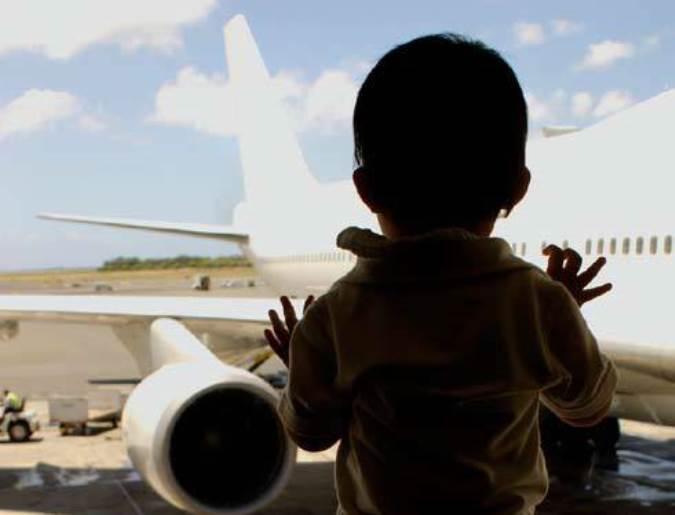The topic of child safety while traveling alone resurfaced this week as a man was arrested for groping a 13-year-old girl on a flight.
The girl was flying alone from Dallas to Portland on a partially-empty flight when 26-year-old Chad Cameron Camp sat in the middle seat right next to her. He first talked to the child and then allegedly started to touch her arm, then leg, CNN affiliate KOIN reported.
A flight attendant noticed the man allegedly inappropriately touching the girl and saw a tear rolling down the girl’s cheek. The flight attendant moved the child and the man to different parts of the plane and Camp was arrested by the FBI upon landing.
“She is already saying she doesn’t want to be on an airplane ever again,” the family’s attorney Brent Goodfellow told KOIN. He said the girl wouldn’t even let her mother touch her after the incident.
There seem to be no statistics on how many children fly alone. Perhaps 1–2 out of every 1,000 passengers on major U.S. airlines are unaccompanied minors, based on 2006 figures for American and Southwest airlines reported by The New York Times.
That would put the total at anywhere up to 1.4 million children flying alone in 2015.
And while reported incidents as severe as mentioned above are rare, the risks are always there.
Here are some facts and tips to help keep your child safe while flying alone:
- Some airlines, like Southwest and Virgin America allow children as young as 12 to travel alone, including internationally, without any special arrangement.
- On many major airlines, children over 5 years old may travel alone, but only with a special arrangement with the airline. The arrangement would usually include a chaperone who accompanies the child to and from the plane, during transfers, and hands the child over to a designated person at the final destination. Some airlines also limit unaccompanied children under 8 to non-stop flights, even with the arrangement. Airlines generally charge between $25 and $150 for each trip. The big three (American, Delta, United) charge $150.
- Some airlines allow the arrangement for children up to 17 years old upon request.
- Check the airline rules for unaccompanied minors (UM) first—each airline has different rules.
- Book a morning flight—statistically, the earlier in the day, the less chance the flight will be delayed.
- A child flying under the UM arrangement should be well instructed on how to behave, what to expect, and accompanied all the way to the gate (you need to get a permission to accompany your child through security and to the gate).
- Be sure the flight was not delayed or cancelled before leaving for the airport.
- Tell the young traveler not to hesitate to push the button to call for a flight attendant if there’s any problem during the flight.
- If a passenger tries to do something inappropriate, the crew must give the child a different seat if the child doesn’t feel comfortable sitting in the original seat.
- But even the UM arrangement doesn’t provide the child with constant supervision. If the child has trouble taking a bus or staying a longer time without parents, flying alone may not be a good idea.
- For the UM arrangement, you'd be asked to fill out a form that includes the name and contact of the person that will pick up the child at the destination. The person will need a photo ID to prove his or her identity and it has to match the name on the form.
Some extra tips from personal safety expert Tom Patire:
- Memorize important phone numbers. Don’t depend on cellphone address books as cellphones can run out of battery, get lost, or be stolen. This holds true not only for travelers, but for everyone. Make sure to drill important phone numbers with your children and repeat the drill from time to time to refresh their memory.
- As a precaution for the worst, remember what shoes your child had on when you left him or her. Kidnappers may disguise the child’s clothes, even face, but it’s unlikely a kidnapper would carry around a pair of shoes of the correct size, Patire said.
Finally, be aware that criminals look for people who are lost, insecure, or weak, Patire said in a phone interview.






